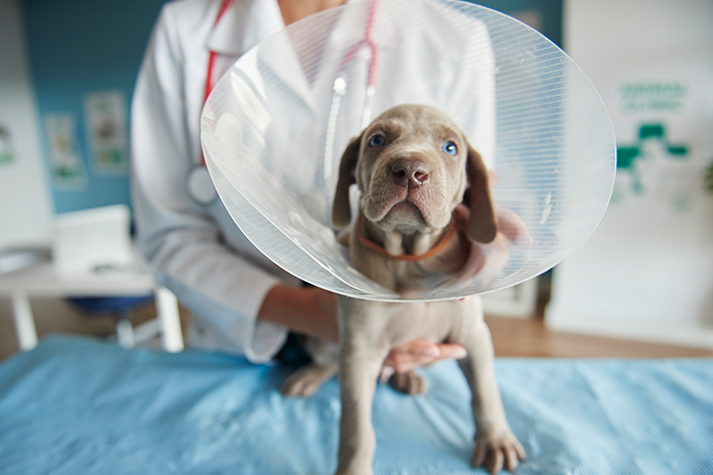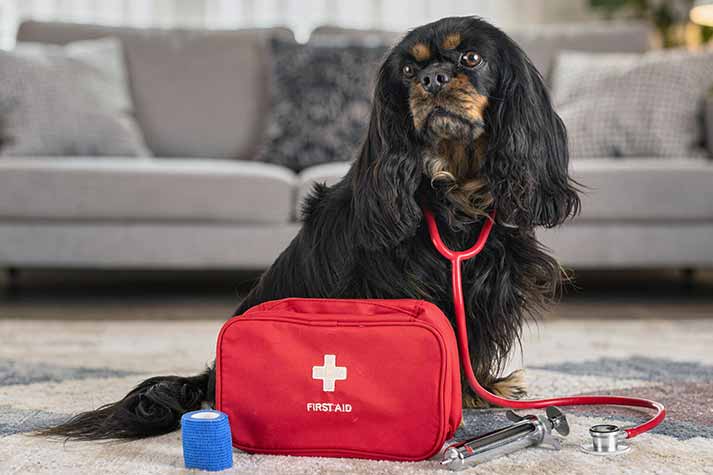
14 May
Neutering in Dogs: Why Should You Neuter Your Dog?
Neutering refers to the surgical process through which a pet's ability to reproduce is stopped. Neutering is often called a “spay-neuter” in the context of pets, as neutering refers to the sterilization process for males and spaying refers to the sterilization process for females. If you have brought a pet home, you may have heard about the process and wondered what it entails. What is neutering? Should you get your pet neutered? Here’s everything you need to know about pet neutering.
What is Neutering? Why Should I Get My Dog Neutered?
As mentioned before, neutering is the process of surgically removing a male dog’s testes to sterilize them, therefore removing their ability to reproduce. Neutering should be considered once your dog is of age, as neutering prevents unwanted behaviour in a dog’s adulthood.
When you neuter your pet, you remove sexual urges, decrease roaming behaviours, and reduce their aggression levels. Some countries may require your dog to be neutered before international pet transport as well. Neutering a dog does not harm their quality of life, nor does it prevent your dog from doing its duties.
For example, a herding dog that has been neutered can continue with their duties with no loss in performance. Similarly, guide dogs and service dogs are neutered and face no added difficulty in their daily lives. In general, neutering will help you prevent unwanted behaviours in your dog, which can progressively become worse as they grow, so it is important to consult your vet and neuter your dog accordingly.
What are the Advantages of Dog Neutering?
Neutering your dog is a regular part of pet ownership; there are advantages to neutering your dog at the appropriate time.
- It reduces the risk of prostate inflammation and infection.
- It reduces the risk of hormone-related diseases and tumours.
- It removed the risk of testicular cancer (among the most common forms of cancer in unneutered dogs)
- It removes sexual urges.
- It reduces roaming behaviours.
- It reduces certain forms of aggression.
- It reduces the occurrence of separation anxiety.
- It increases the general lifespan of a dog.
What are the Disadvantages of Dog Neutering?
While there are no general disadvantages to dog neutering, there are some conditions that can arise if neutering is done improperly or too early. For instance, if you have a large or giant dog breed as a pet, then you should wait until their bones have grown completely; if you neuter them before that, there is an increased risk of cruciate ligament tears.
Similarly, neutering your dog before they are mature can lead to behaviour like phonophobia. However, these conditions are a result of premature neutering rather than neutering itself, which is why you must consult your vet before neutering your pet. Your vet can guide you through the neutering process during a vet visit, and this way you will be sure to get all the benefits of your dog’s neutering with none of the drawbacks.
When Should I Get My Dog Neutered?
Since no two dogs are the same, there are numerous factors to consider before deciding when to neuter your dog. Your pet’s health, age, environment, development, and behaviour all factor in the decision, so the best time to neuter your dog is when your vet tells you to.
Neutering is a major procedure and requires anaesthesia. There are virtually no dangers to the process, provided you have consulted your vet and confirmed that it is an appropriate time to neuter your dog.
Neutering a dog follows these steps:
- Pre-anaesthetic examination
- Pain and anxiety medication
- The vet administers general anaesthesia.
- The veterinary team monitors breathing, heart rate, blood pressure, blood oxygen, body temperature, and state of anaesthesia.
- The surgeon makes a small incision in the front of the scrotum.
- Each testicle is removed, and the spermatic cord and blood supply are cut off.
- The incision is closed with sutures.
- Post-operative medication and care are given until anaesthesia wears off.
- The dog is kept hospitalized until he recovers.
After Care for Dogs Recovering After Neutering
The neutering process generally comes with post-operative instructions that you can follow at home and make your dog more comfortable:
- Give your pet space, and provide them with a quiet place away from others to recover.
- Try to limit your dog from running and jumping for at least a week.
- Prevent your dog from licking the area of the incision, as this may cause infection; use a pet cone (Elizabethan collar) if they continue to do so.
- Check the area of the incision daily for any sign of infection.
- Look out for any swelling, redness, or discharge at the site of the incision; if the incision is open, call your vet immediately.
- Avoid any baths for at least a week.
To conclude, neutering your dog is a routine, necessary, and oftentimes mandatory process for their health and well-being. A neutered pet is better adjusted, has a better temperament, and is less aggressive than an un-neutered pet. Provided you make sure to consult your vet throughout the process and follow their guidance during the examinations, you should have no problem before, during, or after the procedure. Be sure to conduct any such procedure before your international pet travel plans





AUTHOR’S BIO
Carry My Pet
Passionate pet enthusiasts and globetrotters, dedicated to easing furry friends' journeys worldwide. Penning tales of compassion at CarryMyPet, where every relocation is a tail-wagging adventure.